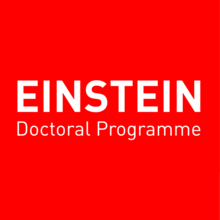The Berlin School of Mind and Brain
Higher cognitive functions – such as decision-making and free will, consciousness and perception, and our human sociality – are among the most distinctive and most complex human abilities, yet they are still comparatively poorly understood. Recent progress in neuroscientific methods has brought some of these problems to the fore of neuroscientific research and empirically informed philosophy.
Even if neuroscientific studies have made significant contributions to our understanding of the relevant neural mechanisms, any serious investigation of these abilities requires insight from numerous other disciplines. In fact, many of the most interesting questions regarding higher cognitive and social abilities of humans require interdisciplinary cooperation between traditional “brain sciences” like neurobiology or neurology, and traditional “mind sciences” like psychology, linguistics, psychiatry, or philosophy.
Interdisciplinary cooperation, in turn, can be successful only if the cooperating scientists are not only experts in their own field of research but also have sufficient interdisciplinary training. This need is exactly where the graduate program of the Berlin School of Mind and Brain and its academic aims come in. Connecting cutting-edge research and excellent training at the interface between mind sciences and brain sciences is our primary aim.
Read more: Research
Read more: Interdisciplinarity
In 2006, the School was founded with funding provided through the Excellence Initiative by the German Federal and State Governments to promote science and research at German universities. In 2017, the Berlin School of Mind and Brain won the first prize in the Einstein Doctoral Programme 2017–2019 competition for the best structured doctoral programs at Berlin universities.
Read more: Doctoral program
Since 2007, the three-year doctoral program of the Berlin School of Mind and Brain has been preparing junior scientists for this challenging interdisciplinary work and has received national and internal recognition for its achievements. In addition to the continuing education and training for doctoral candidates, in 2013 the School set up a highly successful interdisciplinary two-year Master’s program (M.A./Mind track and M.Sc./Brain track). An extensive structured postdoctoral program with ample research and career development opportunities existed for seven years until completion in 2019.
Read more: Master’s program
Based at Humboldt-Universität zu Berlin, the graduate school plays an essential role in the close integration of university research in the greater Berlin area (Humboldt-Universität zu Berlin, Freie Universität Berlin, Technische Universität Berlin and the universities of Potsdam, Leipzig, Magdeburg), clinical research (Charité University Medical School) and non-university research (Max Planck institutes in Berlin and Leipzig; Max Delbrück Center for Molecular Medicine).
Read more: People
Building on the thriving research environment in Berlin, the Berlin School of Mind and Brain focuses on six research topics covering important cognitive abilities, their development, and their disorders:




